Martin Auer: The Strange War, Stories for Peace Education

When the Soldiers Came
Please share if you want to help to promote peace!
Original in English by Martin Auer
Reviewed by Sara Bernal Rutter
Bücher und CDs von Martin Auer

In meinem Haus in meinem Kopf
Gedichte für Kinder

Die Prinzessin mit dem Bart
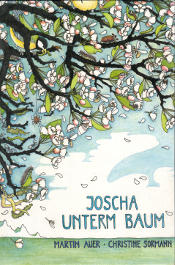 Joscha unterm Baum
Joscha unterm Baum
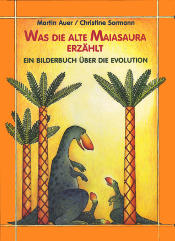
Was die alte Maiasaura erzählt
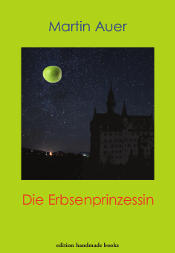
Die Erbsenprinzessin

Der wunderbare Zauberer von Oz - Hörbuch zum Download
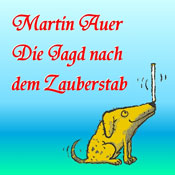
Die Jagd nach dem Zauberstab, Roman für Kinder - Hörbuch zum Download
 Der seltsame Krieg
Der seltsame KriegGeschichten über Krieg und Frieden
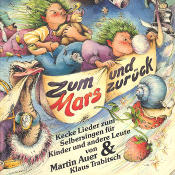
Zum Mars und zurück - Lieder
 Lieblich klingt der Gartenschlauch - Lieder
Lieblich klingt der Gartenschlauch - Lieder
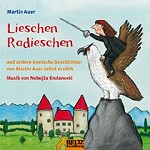
Lieschen Radieschen und andere komische Geschichten - CD
When the soldiers came we were hiding in a cave out in the desert. We had a goatskin full of water with us, some loaves of bread and some figs. That was all. Our two goats we had left behind and I was sad because grandfather said we would never see them again, the soldiers would kill them and eat them. Mother was weeping silently, but she let the baby suck her breasts all the time so he would not start crying and maybe give away our hiding place. I knew I must not cry because I was a big girl already and grandfather said I understood everything like a grown up person. But I could talk with grandfather very low, only from time to time he thought he heard some noise outside and I had to be quiet so he could listen better.
"Why will the soldiers kill our goats?" I said to grandfather. "Don't they like to drink milk?"
"They like to drink milk all right, but they like to eat meat even better. But most of all they don't want the soldiers of king Babak to eat the goats."
"Is not king Babak our king?"
"That's what they say."
"Then should we not have taken the goats with us to save them for the soldiers of king Babak?"
"The goats would have given us away. And it does not matter if the soldiers of king Babak or the soldiers of king Ubuk eat them.
"But if king Ubuk wins the war, will his soldiers not kill us all?"
"No. When the war is over, we will have to pay tribute to king Ubuk instead of king Babak. That is all the difference."
"But is not king Babak our rightful king and the father of the country? Is he not the father of us all?"
"That's what the priests say, yes. But before him, Erek was our king and the father of the country and we had to pray for his health in the temple. Babak then was the king across the river. Then Babak and Erek had a fight because Erek had defiled Babak's honour and Babak's army defeated Erek's army and Erek was killed and Babak took his country."
"Did not also king Ubuk defile king Babak's honour?"
"That's what they say, yes."
"So was not king Babak right to fight for his honour?"
"This is what kings do."
"Don't you fight for your honour, grandfather?"
"We peasants do not fight for our honour. When the priest calls me a lazy swine because I do not bring enough corn to the storehouse, I cannot defend my honour. The priests would have me flogged to death. But with kings it is different. All kings must learn to defend their honour."
"Why kings and not peasants?"
"When a king's honour is defiled by another king he will call together his army and fight with the other king. Sometimes he loses his life in battle. And sometimes the other king is killed and the survivor will add the loser's kingdom to his own kingdom. The loser does not know that fighting for your honour can kill you, because he is dead. And the winner learns that it pays to defend one's honour. When my grandfather was young there were thirty small kingdoms in this valley. Now there are five bigger ones."
"Because the kings had fights with each other? Because their honour had been defiled?"
"It was always something like that", said grandfather.
"But what if a king does not want to defend his honour? What if a king does not want to fight and have his people killed and wounded and suffering?"
"Then the other kings will think he is weak and will take away his country anyway."
"And has it always been like that? Have there always been wars to make bigger and bigger kingdoms?"
"I don't know", said grandfather. "My grandfather said that once there were no kings, only farmers. He said they lived together in villages. And that they did not know about war. I can imagine it is true what my grandfather said. Why should they fight with the neighbouring village? Why should they want to take away their land? A farmer can only cultivate so much land. He has no use for more land than he and his family can cultivate. Oh well, maybe they had many children and after some time there would be a few more families that needed land. Would they start a fight to take away someone else's land? I doubt it. I think they would rather divide the land they had than take the risk to start a fight and maybe get killed. And even if they started a fight they would stop when they had won enough land. There would always be a limit to their greed. But to a king's greed there is never a limit."
"Is a king a different being from a peasant?" I said. "Maybe it is a different kind of animal, like a goat is not the same as a sheep?"
"I don't think so" said grandfather. "I think if you take the son of a peasant and bring him up as a king he will do all the things that kings do."
"Then why are kings different?"
"Because the way they make a living is different. My grandfather said, that apart from farmers there were also hunters in the old times. They were living in the woods and hunting animals. They too did not fight with each other for land. Each group had their own hunting grounds and they could not use bigger hunting grounds. But one day the weather got drier and the woods got smaller and the animals in the woods got less. And the hunters discovered a new sort of prey. They discovered the farmers with their storehouses full of seeds for next year and their goats and sheep and pigs. They would steal from the farmers, and when the farmers tried to defend themselves they would kill them. The hunters were better at using weapons, my grandfather said, because they had been using them every day. And soon they discovered it was better for them not to kill all the farmers and not to take away everything from them. Because if the farmers survived and had some seeds and some fodder left, they would plant corn again and would raise animals again and the next year they could be robbed again. And some clever chiefs made a treaty with the farmers and told them: If you pay me a tribute every year, I will defend you against other robbers. So the hunters became warriors and their chiefs became kings.
Now for a king owning land is a different
thing. Because a king does not work on the land himself. He has the
peasants who work and give him corn and butter and meat and wool and
other things. The king does not eat or use all this himself. He uses it
to feed and clothe his soldiers and his priests and the smiths who make
the swords and the bow makers who make the bows and arrows for the
soldiers and the builders who make palaces and temples. And all this he
uses to conquer more land to get more tribute to feed more soldiers to
conquer more land to get more tribute to feed more soldiers to conquer
more land and so on."
"But what if the king decides he has got enough land and enough peasants to work for him and his soldiers?"
"He must always fear that another king who has more peasants and soldiers will come and take away his land. Therefore he must never stop to try and make his country bigger and his army stronger."
"So if there would be no kings there would be no wars?"
"If there were no people who live on the work of other people, at least the fighting would not be endless as it is now. Maybe there would be no palaces and the temples would be smaller and there would not be so many artists who make beautiful jewellery and grand statues because nobody could afford that sort of thing. The carpets would not be so colourful, but everyone would have simple carpets and not sleep on the naked floor. Maybe there would be a fight now and then, but it would end."
"So the fighting will not end any more?" I asked grandfather.
"Maybe after many thousand years, when all the world is only one kingdom."
"But can we not get back to the way it was before there were kings?"
"I don't think so", said grandfather, "How could that be? The soldiers have swords and bows and arrows. And what do we have?"
"But what if all the peasants in the world would agree not to feed the kings and their soldiers any more?"
"It is not possible", said grandfather. "Who would send the messengers to all of them?"
When the soldiers had gone, the village was empty. All the animals had been killed or taken away, all the grain had been taken from the storehouses and burned. Even our hoes and sickles were gone. Grandfather showed us how to fish in the river and how to cook some wild plants, and somehow we got through the dry season. And then some corn would grow on the fields from some seeds that had fallen to the ground at the harvest, and we would not bake a single loaf but keep it all to sow it again. Little by little we brought the fields back to life again. Mother died and then grandfather died too, and my little brother married a girl from the neighbouring village and they had a child.
And one day the soldiers came.
Author's comments
This site has content self published by registered users. If you notice anything that looks like spam or abuse, please contact the author.
